AFFORDABLE childcare, paid leave, flexible working hours – this could be the wish list of any working woman or couple – but for Indra Nooyi, it is a “moonshot mission” that governments and companies need to resolve.
The former CEO of PepsiCo became a role model to millions of young women and aspiring business leaders worldwide when she took up the post in 2006. She is passionate about getting women into the workplace and keeping them there, even as they raise families.
“Women represent the biggest emerging market opportunity inside every developed market,” Nooyi told Eastern Eye last month, ahead of the launch of her book, My Life in Full.
In it she notes that the work world is still “skewed towards an unencumbered male breadwinner” and how that depletes society. It is not only companies that lose out, but also the global community, she argues.
“Let’s look at the trifecta – flexibility, predictability, in workplaces and time, and childcare,” Nooyi told Eastern Eye.
“What Covid did was advance the technology to enable remote work – it became an acceptable way of work. And on top of that, flexible working hours also became acceptable, as long as you deliver.
“So, if you have enough paid leave in the system, if you develop the technology, tools and the mindset to allow hybrid work – come into the office when you can, but work remotely, flexibly, then, for those days, you need childcare – the system can work.
“And I think we’re very close to that.”
“Everybody realises that women, especially, carry a disproportionate amount of the burden of homecare duties and childcare, but they are also smart and hungry and want to contribute to paid work,” Nooyi told Eastern Eye.
“The only way to allow them to fulfil their hopes, dreams and engage in paid work is to have this infrastructure support. I definitely expect that people will move to solutions in our lifetime, my lifetime for sure.”
Since stepping down as PepsiCo chair in February 2019, Nooyi has remained busy, juggling multiple roles – from being on the boards of Amazon, Philips, the International Cricket Council, the Memorial Sloan Kettering Cancer Center to writing the book.
“It’s been a very full and fulfilling life the past couple of years,” she said.
In a wide-ranging video interview from her US home, Nooyi also spoke about how the role of a CEO has changed in recent years, why she thinks the US is the best place to succeed in and how her early years in India shaped her as a person.
My Life in Full charts her journey, from a young girl who grew up in a newly-independent India to becoming the CEO of PepsiCo. It is a candid memoir – engaging, moving and funny – and aims to inspire the next generation of women leaders who dream of having a successful professional career while also caring for their family.
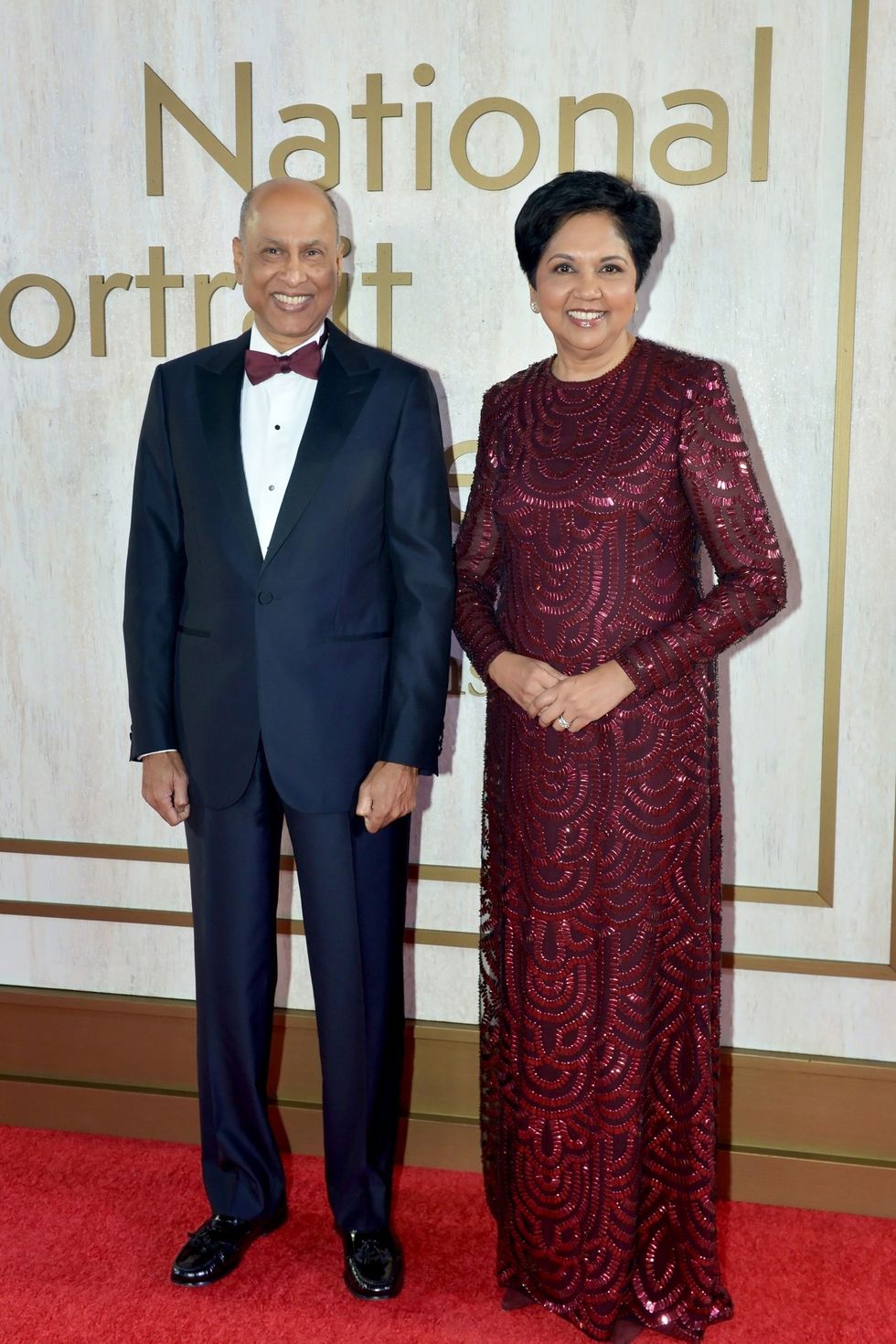
“I had a very solid upbringing, very disciplined, structured. And in many ways, a lot of the life lessons I learned came from that upbringing and stability. It gives you confidence; that life builds confidence in you,” Nooyi revealed.
“As you move along, and come to being the CEO, you build on those experiences, you add a whole portfolio of experiences to your upbringing. You listen to mentors and supporters, and build your portfolio of capabilities.
“That’s what I did. But at the end of the day, at the core, I am that young girl from Madras (now Chennai) who grew up in an environment where there was discipline, there was a frame. We were given freedom within the frame.
“You had parents with one foot on the brake and one foot on the accelerator (Nooyi’s analogy for the kind of parents who know when to support and when to discipline their children). So, I know all my boundaries.
“And I worked hard to make my family proud of me, the country of my birth proud of me, and the country I’m thriving in very proud of me. I feel like I owe all of them a debt of gratitude. I live by those rules and expectations that are self-imposed in my day-to-day functioning.”
Nooyi grew up in Madras, one of three children, with an older sister and a younger brother. After graduation, she secured a place at the prestigious Indian Institute of Management in Calcutta (now Kolkata) and worked in Madras and Bombay (now Mumbai) before moving to the US to study at the Yale School of Management on a scholarship.
A career in consultancy followed, with stints at the Boston Consulting Group, Motorola and Asea Brown Boveri, before she joined PepsiCo in 1994, serving initially as president and chief financial officer.
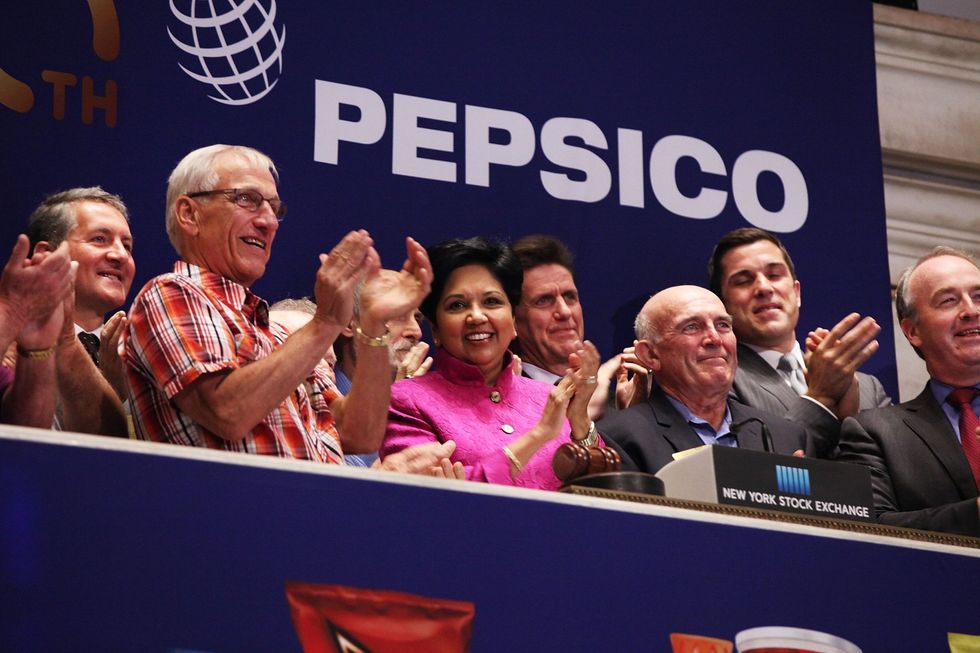
In 2006, Nooyi was named CEO, a post she stayed in until August 2018. She left PepsiCo as chair in February 2019.
Almost a third of her book is devoted to her time in PepsiCo where she was involved in some of the company’s most strategic decisions, including the giving off of the restaurant brands, the acquisition of Tropicana and the merger with Quaker Oats Company.
It was also at PepsiCo that Nooyi launched her ‘Performance with a Purpose’ programme, which was about minimising the impact of business on the environment while not taking the eye off the financial bottomline.
On her watch, the company worked to reduce the salt and fat content in its food brands and PepsiCo changed its manufacturing processes in order to conserve water, reduce waste and use renewable energy where possible.
“I wasn’t doing anything at PepsiCo because of some movement,” Nooyi told Eastern Eye.
“I started it because I believe that was the best way to future proof the company. If we didn’t change, our performance would be impacted.
“To me, it wasn’t about giving away the money we made, it was about changing the way we make money.”
In the book, Nooyi describes the resistance she faced to her decisions, but she stood her ground and noted that investors didn’t suffer losses.
“I wanted us to mirror the pains of society and address them,” she told Eastern
Eye. “In those days that was the right way to approach things. It still is.
“When companies don’t approach it that way, you get activism from wellmeaning campaigners and NGOs.
“If we all thought hard about these activists and NGOs, what they’re saying is not completely off. We should be doing it anyway, on our own.”
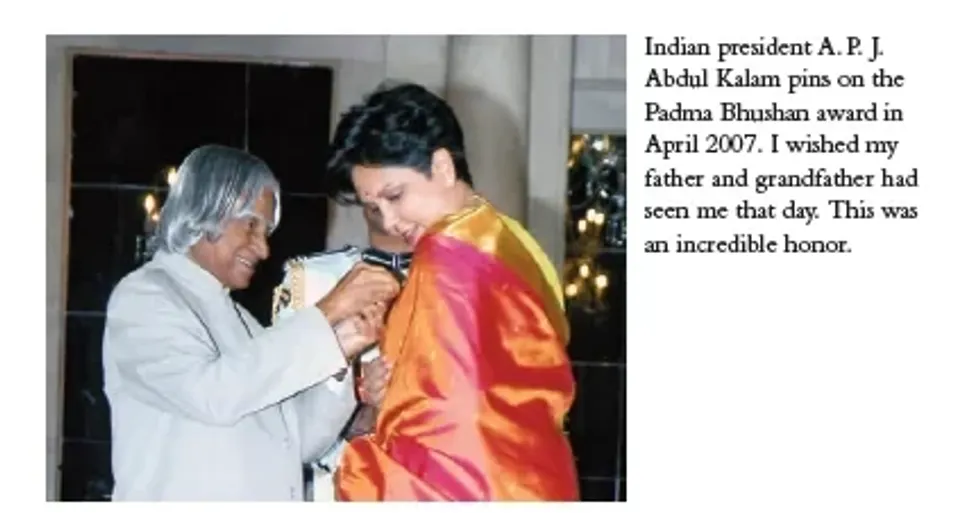
Another highlight of her time at PepsiCo was Nooyi’s tradition of writing letters to the parents of the people who directly reported to her. She explained how the idea occurred to her.
“When I first went back to India after I became CEO, most people congratulated my mother for bringing me up the right way. They spent a lot of time telling her she must have done something right to have me turn out the way I did. And I think very few people congratulated me.
“It made me pause and say, ‘if people feel that way, and, appropriately so, how come I haven’t thanked the parents of my executives who give so much to PepsiCo?’ So it started with me writing to the parents of my direct reports. I even visited many of them in their homes.
“It was an unbelievably transformative experience, because when I wrote to them, the emotions that got unleashed were unbelievable – that somebody would acknowledge their contributions to corporate America through their kids.
“The children were shocked by the emotion. I was not surprised, but I was touched by the letters, gifts and cookies that came back with their little notes.
“Then I started to expand that and by the time I left PepsiCo, I had written to about 300 or 400 of the executives. I had always written to the spouses – a handwritten note to thank them for all the hours that their spouse was giving to PepsiCo, but expanding it to the parents made a huge difference. Huge.”
Being perceptive and empathetic to those around her made Nooyi one of a kind among corporate leaders in the US.
She told Eastern Eye, “The old model of leadership was leading with the head and the hands, you know, being a little bit more imperial as a CEO. It was a model where it was always a male, with a stay-at-home spouse. It was wrong to even talk about the family while you are at work. It was a very different approach.
“Recently, in the past decade or so, what you’ve had is people bringing a bit of heart to the job and saying, ‘hey, maybe CEOs are people too’.
“They do have families, partners, kids, and maybe the ideal CEO is somebody who realises that the employees are not robots. They are not tools of the trade, but assets and, when you think of them as real assets, you’ll deal with them very differently,” she said.
“I think the whole emotional quotient and the empathy part is becoming a bigger factor in CEOs today – the human side of leadership.
“And the new breed of CEOs is now beginning to bring the human side, to show a little bit more. People are pleasantly surprised at the employees saying that they have a real person as a CEO.
“When you start to showcase yourself as a human, you look at others as humans, as people with real issues, joys, hopes, dreams, ambitions, families, society behind them. You look at issues differently.”
Throughout her career in the US, Nooyi says she was fortunate to be supported and encouraged by her mentors, who saw a spark in her and valued her for her hard work and talent for solving complex issues.
In the book, she mentions an incident at Chequers, the country retreat of the UK prime minister, which she visited as part of a US delegation when she was the CEO of PepsiCo.
Nooyi does not name the prime minister, but recalls a conversation where she was asked why she chose to migrate to the US and not the UK.
Her response? “Because prime minister, I wouldn’t be sitting here lunching with you if I’d come to the UK.”
Nooyi explained the appeal of the US during the interview.
“I’m talking about the time that I moved to the US, not today, when things are very different.
“In those days, when I first migrated to the US (versus the UK), the US was viewed as a country that valued talent and was welcoming of everybody.
“As long as you are contributing, and you were competent, the US gave you a chance. I am living proof of that.
“I’ve had so many mentors and supporters who have lifted me up over the years in the US. I had opportunities for jobs and promotions, even though I may have been dressed badly or I just didn’t look the part, but they said, ‘hey, there’s something in her that we like’.
“And people went over and above the call of any normalcy to give me a hand and pull me up.
“One example is when a train company flew over two planeloads of executives (from Wisconsin) to Chicago, so that I didn’t have to travel to La Crosse [city in Wisconsin] when I was nine months pregnant, so they could listen to the presentation we were going to give.
“I’ve had incredible acts of kindness, generosity and support from leaders in the US. America was way ahead of any other country in doing that.
“Even today, I would say, in spite of all the criticism we get here in the United States, this is still one of the greatest countries in the world, if not the greatest. It’s still welcoming of people. It still gives people a chance.
“And I’m watching around me, the number of immigrant people who are CEOs of iconic companies like Google, Microsoft, Nvidia – these are all run by immigrant people.
“I look at this and I go, ‘you really have a chance to be anything you want to be as long as you’re willing to contribute and make a difference.’ This is a country that values you for who you are.”
However, she noted that while the US is full of opportunities for those (immigrants) who qualify, at the end of the day it was not a person’s race or ethnicity that counts in their success.
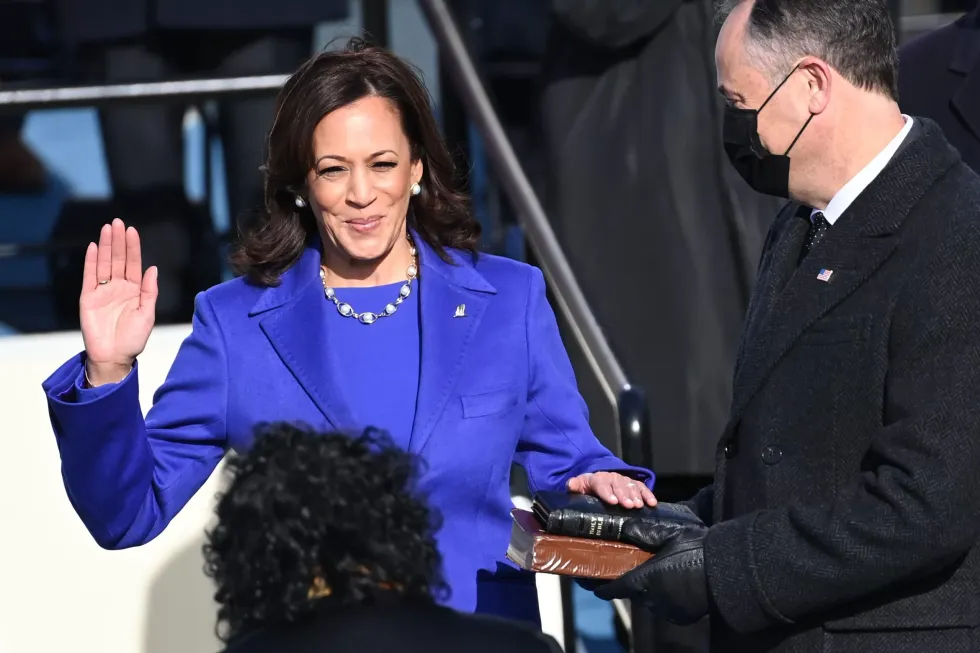
In response to a question about Kamala Harris, the first female vice-president of Indian and black heritage, Nooyi said, “You do have a sense of pride about all of that, but what matters is what you deliver. You don’t get a job and keep it because of your heritage. You get a job based on your capability and your competence, maybe your heritage too, but then keeping it (the job) is much harder.
“You’ve got to demonstrate value, and that you’re good at the job. And that’s what Kamala Harris is working on right now. No doubt she will do a great job. But she has to prove that (US president Joe) Biden made the right choice in appointing her vice-president.
“The whole world is watching, and the expectations on her are sky high.”
As for herself, Nooyi has ruled out a career in politics, because, she said, “politics requires a skill, it requires diplomacy, patience. I don’t have any.”
For now, after a busy and full life, Nooyi’s goal is learning how to chill – simply by taking a walk.
An immigrant’s experiences
THE US has been home for Indra Nooyi for more than four decades now, since she arrived in America as a young student at Yale.
Her nuclear family includes her husband Raj and their two daughters, Preetha and Tara. Nooyi’s elder sister and younger brother also live in the US, as does her mother, Shanta.
Nooyi reveals incidents in the book where she or her family faced bias because of their ethnicity. However, she told Eastern Eye she did not wish to define Americans based on the 10 per cent of bad experiences.
“Those experiences hurt like hell, especially when it happens to your kids [Nooyi changed her daughter’s school when she realised she had been discriminated against]. But you always have to look at the other 80 or 90 per cent that were fantastic.
“My father used to say, ‘assume positive intent’. And I started to assume positive intent about those people who had a positive intent. Those that didn’t have a positive intent, you know what, it’s in my past.
“It was difficult when it happened, believe me. Now I can talk about it more philosophically. But when this happened, it was very, very difficult.
“But now I’m saying it was such a small portion of bad experiences. I don’t want to define the whole community based on that.”
My Life in Full: Work, Family and Our Future by Indra Nooyi, published by Piatkus, is out now.

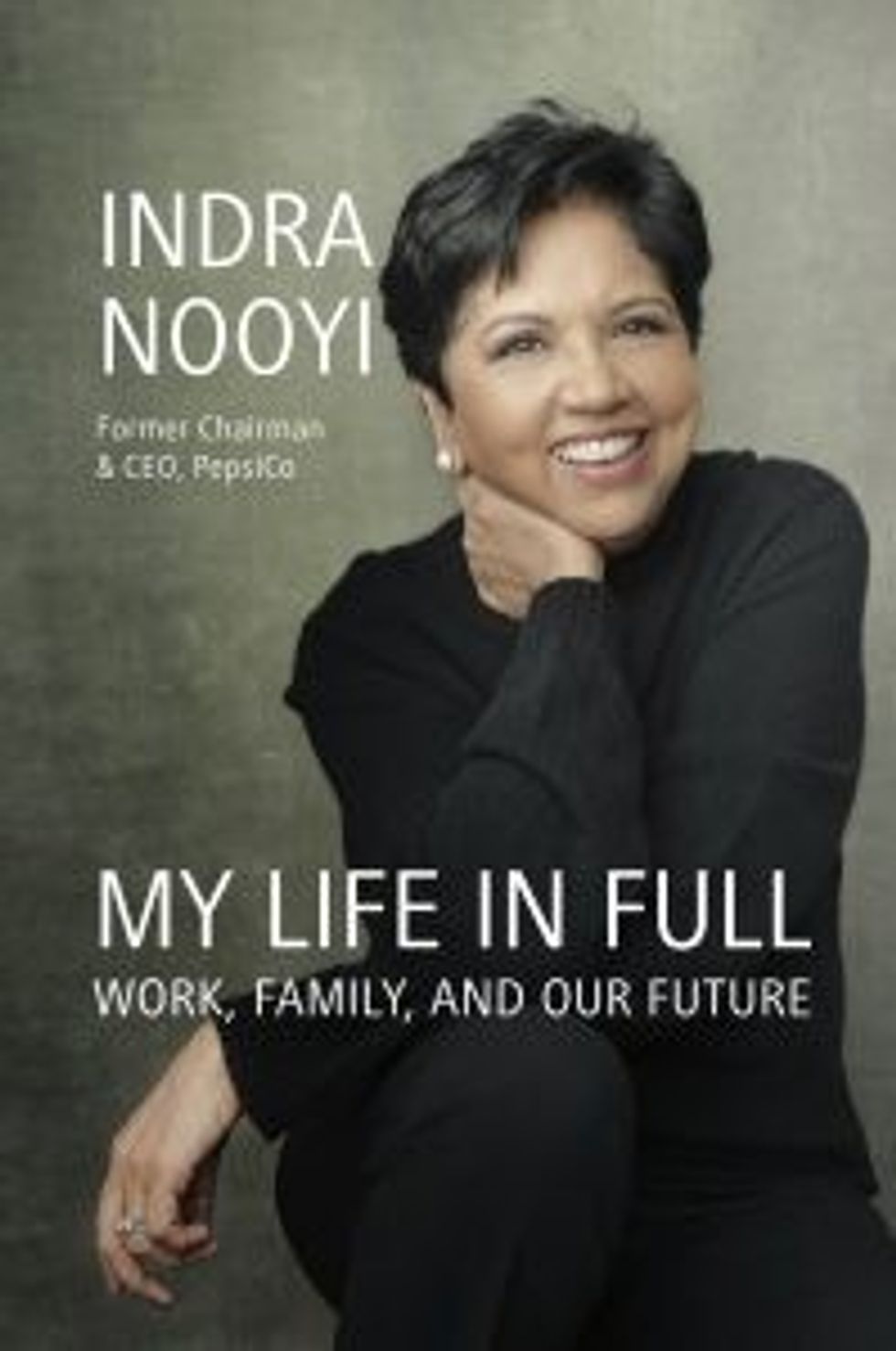
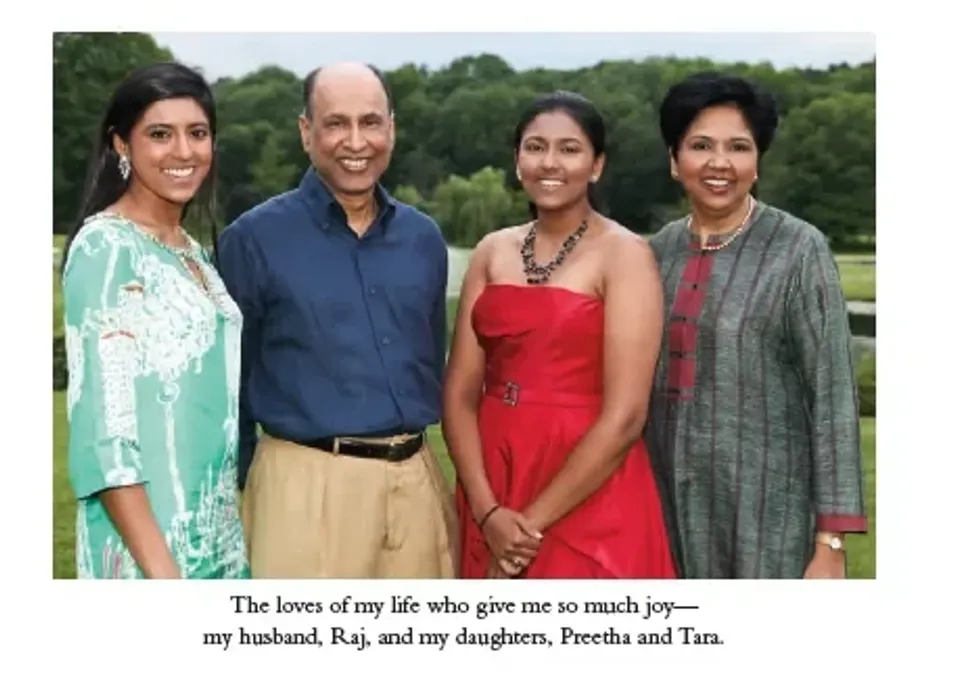





 Reena Barai, chair of the PB Conference, on the podium with Sadik Al-Hasan, Harry McQuillan, Shilpa Shah and Nick Kaye on stage
Reena Barai, chair of the PB Conference, on the podium with Sadik Al-Hasan, Harry McQuillan, Shilpa Shah and Nick Kaye on stage Yasmin Karsan, Pritee Panchmatia and Fin McCaul
Yasmin Karsan, Pritee Panchmatia and Fin McCaul Baba Akomolafe, Rachna Chhatralia, Patricia Tigenoah-Ojo and Raj Matharu
Baba Akomolafe, Rachna Chhatralia, Patricia Tigenoah-Ojo and Raj Matharu Shailesh Solanki
Shailesh Solanki  Reena Barai
Reena Barai  Janet Morrison
Janet Morrison David Webb
David Webb 










 Damian Talbot
Damian Talbot
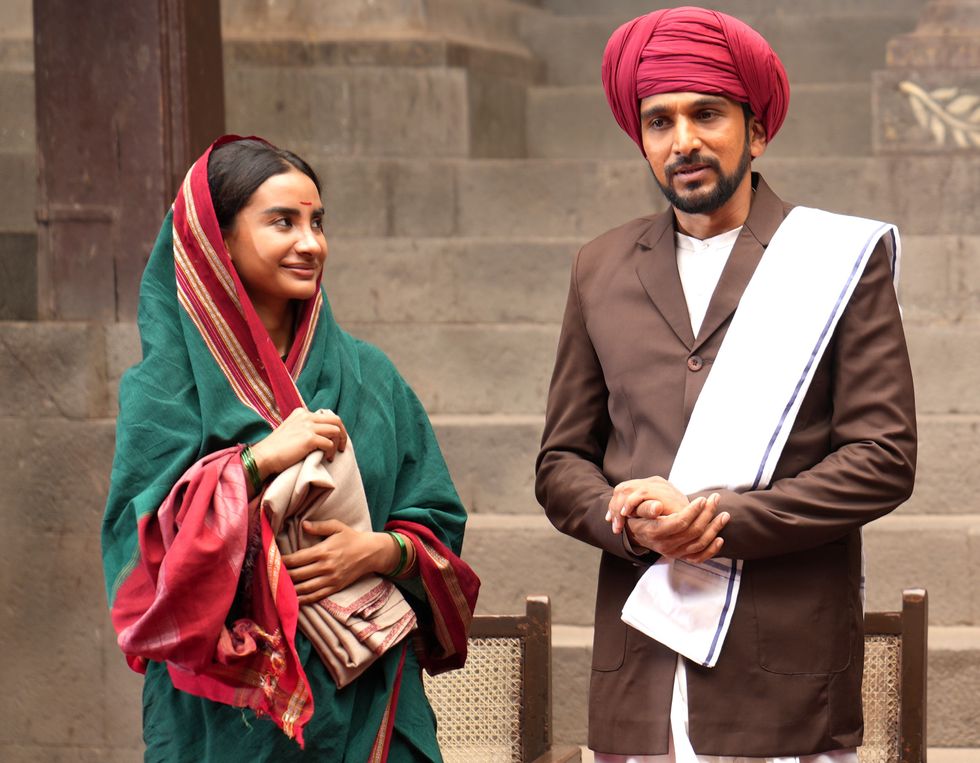 A still from Phule
A still from Phule
 Nirmala Sitharaman speaks at the India-UK Investor Roundtable in London last Wednesday (9). On the panel were India’s department of economic affairs secretary Ajay Seth and Kotak Mahindra Bank founder Uday Kotak
Nirmala Sitharaman speaks at the India-UK Investor Roundtable in London last Wednesday (9). On the panel were India’s department of economic affairs secretary Ajay Seth and Kotak Mahindra Bank founder Uday Kotak Sitharaman with Sir Keir Starmer and Rachel Reeves
Sitharaman with Sir Keir Starmer and Rachel Reeves Sitharaman with Jonathan Reynolds
Sitharaman with Jonathan Reynolds  Sitharaman with Reynolds, Alastair King, India’s high commissioner Vikram Doraiswami and other delegates
Sitharaman with Reynolds, Alastair King, India’s high commissioner Vikram Doraiswami and other delegates